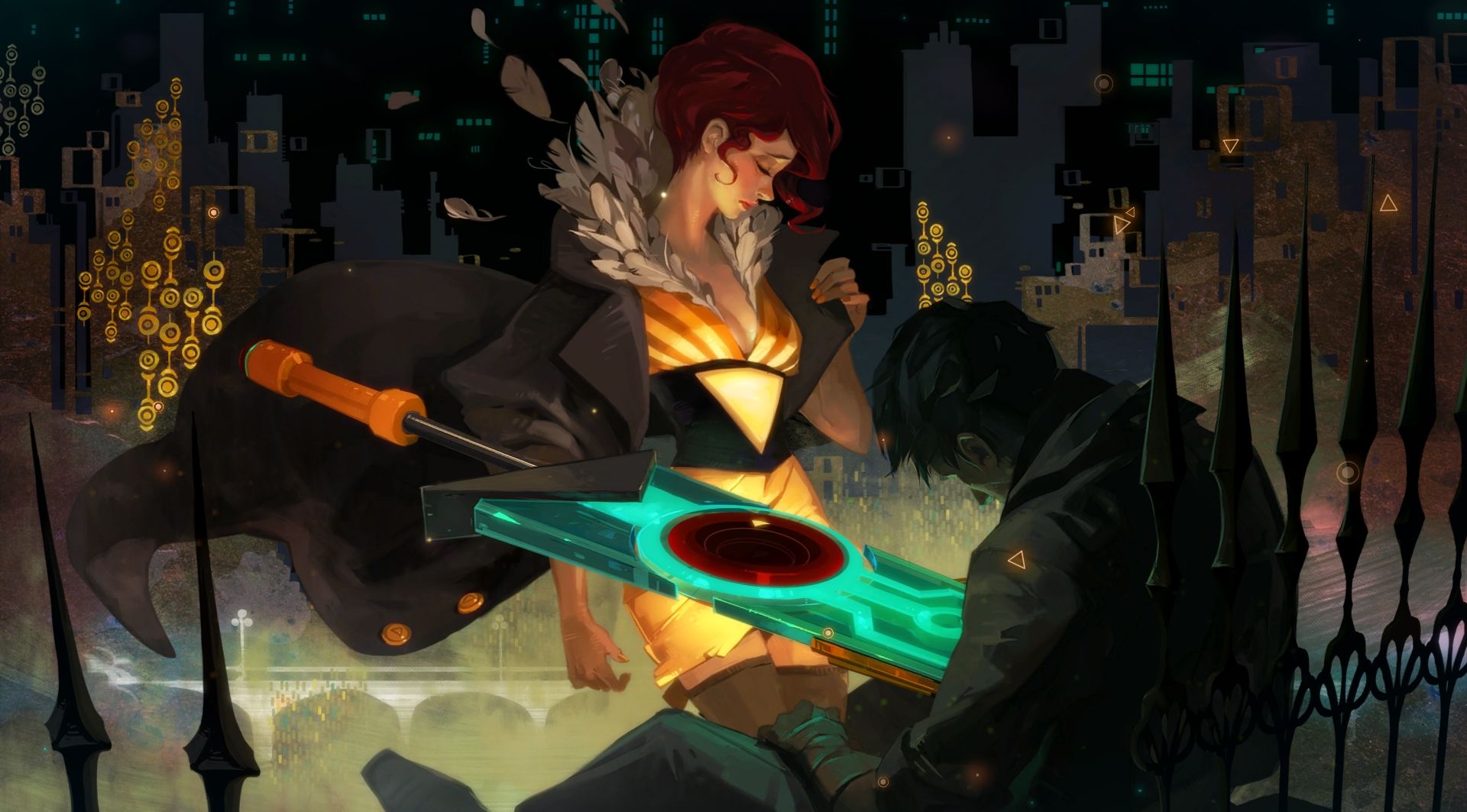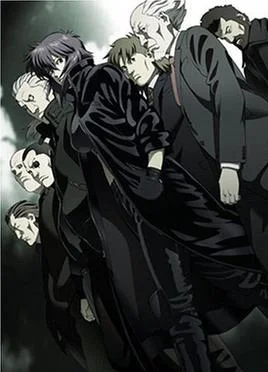Crossing Wires and Killing Punk
The Cover of Gang of Four’s Capital (It fails us now)
For the majority of my life, I've listened to punk music. I've never really adopted the aesthetic – I don't really like wearing graphic tee shirts, I've never attached a stud to anything, and it's only recently that I've begun to style my hair in any way. I've joked once or twice that I was the Tom Wolfe of the KC punk scene. Still, I enjoy the music and the message, and I feel justified now that I'm getting older and see a lot of aging punks adopt my more understated approach to dressing for shows.
So I have a lot of thoughts on what “punk” means.
In fiction, and broadly in aesthetics, punk is largely anti-authoritarian but non-revolutionary. In the political compass sense, it tends towards the bottom or “libertarian” end (caveat: people who claim to be libertarian in the US political sense are not and never will be punk. Don’t @ me.) In narrative media, this tends towards a somewhat mythic structure (similar to the thing I called “the millennial monomyth” a while back), a paradigm that all -punk stories usually follow, similar to 19th century realism or naturalism in many ways. Consider a capable but fairly normal person who wishes to be largely left alone; consider some powerful agency or circumstance that will not do that. The story is the Rube Goldberg interaction that arises here.
Full disclosure: I’ve got a soft spot for Solarpunk Aesthetics because it reminds me of Transistor, from Supergiant games. One of the most beautiful works of interactive art I’ve ever seen.
It's always brought me a great deal of amusement that “-punk” is the preferred suffix for new speculative fiction genres. The first of these were cyberpunk and steampunk. Lately, though, I've noticed a huge proliferation here: dieselpunk, atompunk, solarpunk, seapunk, hopepunk, lunarpunk, candlepunk, clockpunk, witchpunk – Edgar has even joked about a steampunk derivative called “Slavpunk” where all technology is powered by samovars and misery. This is, honestly, too much.
A big driver of this has been Tumblr and other, similar, social media sites. People invent new genres and aesthetics and post about them, and then act as if they're a thing. This is something quite strange to me: genre sans art, form sans content. Style over substance where the style is presented as only a schematic.
Note, I don't have any problem with style. I don't have a problem with emphasizing style. I prefer substance, but style can carry it a long way. These new pseudo-genres are, honestly, not even that. There's nothing to them (“Hopepunk” coined by Alexandra Rowland and described by Aja Romano is obviously the most egregious violator here. Response from Jeff VanderMeer here.) There are many problems with these: they're not bothering to create any content, and barely give any attention to style; they approach creation backwards (as I argued on Monday, I will always maintain that genres are invented by advertisers, and holding to them will shackle your creativity); and they're watering down what “punk” means.
I feel that it's time to kill punk.
While compelling, Ghost in the Shell doesn’t meet the criteria for punk. Call it something else and maybe don’t cast Scarlett Johansson as the (Japanese) lead in the live action movie. Rinko Kikuchi’s out here bringing pathos to a giant robot movie and she wasn’t even given the time of day.
At least the genres that go by that moniker, and possibly everything under the banner. “Punk” has always been intended as an anti-authoritarian – indeed an anti-authority – aesthetic gesture, and this isn't expressed in many of the suffixed punk genres. How many steampunk stories focus on characters in the Victorian gentry? Is not one of the seminal works of cyberpunk (Ghost In The Shell) about the police? Can we truly call something anti-authority when it celebrates authority?
I would say that the answer to this last question is a resounding and decisive “no.”
Creators need to stop thinking of things in terms of what box it will fit into when it's done, because the boxes that we have to fill with our art are often insufficient for our needs. An exception may exist for parody (because how can you have parody without the archetype for that parody?) but for serious works or, rather, for works that aspire to a real sense of invention, nothing will hamper a creator more than trying to make their works inside the box.
Ships in bottles may be aesthetically satisfying, but a ship built in a bottle will never carry anyone on an important journey.
On a less strident note, calling every new genre “punk” waters down that particular label, making it less and less useful as a descriptor. Cyberpunk originally adopted that name because it had a particular “punk” quality to it – it was anti-authoritary, even if it was not a particularly politically revolutionary genre. Neuromancer's Case never sought to be a overturn the systems of the world, but he feared and hated those in power and sought to make his living by working against their interests.
Boneshaker by Cherie Priest — possibly the best steampunk book I’ve ever read.
Likewise, as pointed out in Sam Keeper's monograph Who Killed the World?, the principle protagonist of Cherie Priest's Boneshaker, Briar Blue, helps the work qualify as punk insofar as she is attempting to lead a life far away from the centers of power and to hold her family together. She may not be a revolutionary, but she is opposed to the structures of authority.
And this, really, seems to me to be what punk is about: if not about overthrowing authority, then about resisting it; if not about breaking authority, then about undermining it. It's not a revolution in the sense of the American or Russian revolutions, which were followed by the establishment of new centers of power (or co-option of preexisting centers of power,) but a revolution in the sense of May of '68, which was less a coherent project and more about escaping the hand of power.
Before I continue, I want to say that I have a sympathy with this idea: most people just want to be left alone, and there's nothing wrong with that. However, to me, this seems to be the baseline, and there's something defeatist about making it the end goal.
In short, it seems to me that punk, as a sort of subcultural program, is lacking. It is a rebellious movement suited for the neoliberal period: a largely individualized flight from the locus of control. Of course, it's also largely a ritualized flight from the locus of control. The fact of life is that, after a night of wrecking the mosh pit, most punks these days get up and go back to work. This isn't meant as a criticism: tomorrow I'm going to wake up and pull a ten-hour shift, and I have work for the three succeeding days.
I don't have a proposal or even a vague idea for what an actual revolutionary outgrowth of punk would be, but I do know that using it as a one-size-fits-all term for sub-genres waters down what is actually revolutionary in it, and I know that building a piece of art from the foundation of “this is the genre” is a weak start.
So, yeah. Let's kill punk.
If you're uncomfortable abandoning genre labels altogether, at the very least abandon the one-size fits all terminology.
Or, for the tl;dr crowd, on the fiction side. To borrow a meme:
Tired: -punk genres.
Wired: -pulp, -wave, -stream, -whatever genres.
Inspired: going without a genre label until you have to sell the damned thing.
And on the punk side:
Maybe spending all of your time and energy categorizing punk and arguing about what and what doesn't fit in the punk-bucket or score you punk-points is a waste of time and energy you could spend making the world and your experience of it better and more enjoyable.
Just a thought.
※
If you enjoyed reading this, consider following our writing staff on Twitter, where you can find Cameron and Edgar. Just in case you didn’t know, we also have a Facebook fan page, which you can follow if you’d like regular updates and a bookshop where you can buy the books we review and reference (while supporting both us and a coalition of local bookshops all over the United States.)




